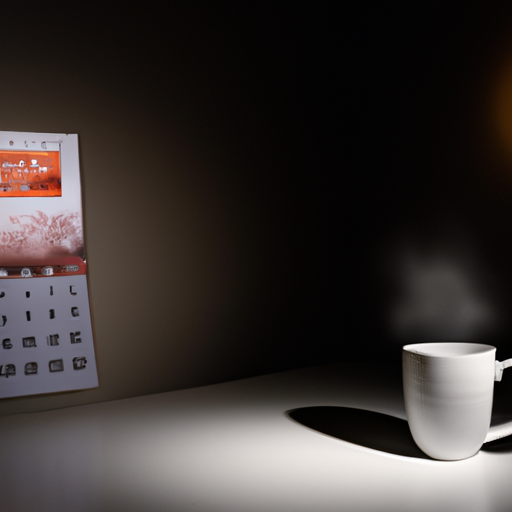As a tea enthusiast, I often find myself pondering the question of whether it’s safe to consume expired tea. Specifically, I want to explore the topic of drinking Yogi Bedtime Tea when it’s past its expiration date.
In this article, I will delve into the potential risks involved, as well as the benefits of consuming fresh tea. By examining the factors that should be considered before indulging in expired tea, we can make informed decisions about our health and well-being.
Additionally, I will provide safe practices for consuming expired tea and explore alternative uses for it. Through this exploration, we can gain a deeper understanding of the complexities surrounding tea expiration dates and ultimately make choices that align with our own preferences and health goals.
So, let’s embark on this journey together and unravel the mystery of drinking Yogi Bedtime Tea when it has expired.
Key Takeaways
- Inspect the Yogi bedtime tea for any signs of mold, discoloration, or strange odors before consuming it.
- Discard the tea if there are any indications of mold, discoloration, or strange odors.
- Brew the tea using boiling water to ensure any potential bacteria are killed.
- Pay attention to the taste of the brewed tea and do not consume it if it tastes stale or unpleasant, as it may have diminished flavor and potency after the expiration date.
Understanding Tea Expiration Dates
Tea expiration dates may seem strict, but it’s important to understand that they’re more of a guideline for optimal flavor rather than a hard and fast rule. While most teas have a relatively long shelf life, the flavor and aroma can deteriorate over time.
Tea leaves are delicate and susceptible to environmental factors such as light, air, and moisture, which can cause them to lose their freshness.
The shelf life of tea can vary depending on the type of tea and how it’s stored. Generally, unopened tea can last for several years if stored in a cool, dry place away from direct sunlight. However, once the tea is opened, its flavor and aroma begin to degrade, and it’s recommended to consume it within six months to a year for the best experience.
Expired tea isn’t necessarily harmful to consume, but it may not taste as good as fresh tea. The flavor can become dull and flat, and the aroma may be less pronounced. Additionally, the tea may lose some of its health benefits over time. While it’s generally safe to drink expired tea, it’s always best to use your judgment and trust your senses when deciding whether to consume it.
Understanding the shelf life and expiration dates of tea can help you enjoy a better cup of tea. Now, let’s explore the potential risks of consuming expired tea.
Potential Risks of Consuming Expired Tea
When consuming expired tea, there are potential risks that should be considered. Firstly, the flavor and quality of the tea may significantly decrease over time, resulting in an unpleasant taste experience.
Secondly, there could be health concerns associated with consuming expired tea, as the tea leaves may have degraded and lost their beneficial properties.
Lastly, there is a possibility of contamination in expired tea, which can lead to foodborne illnesses if consumed.
It’s important to be aware of these risks and make an informed decision when consuming expired tea.
Decreased Flavor and Quality
Despite being past its expiration date, the yogi bedtime tea tastes shockingly bland and disappointingly lackluster. The degraded aroma is a clear indication that the tea has lost its freshness and flavor.
When tea expires, the essential oils responsible for its aroma and taste start to break down, resulting in a less vibrant and enjoyable beverage. Additionally, consuming expired tea may pose potential health risks. Over time, the tea leaves may become susceptible to contamination by bacteria or mold, which can lead to adverse health effects.
Therefore, it’s crucial to prioritize freshness when it comes to consuming tea to ensure both the best flavor and minimize any potential health concerns and contamination.
Health Concerns and Contamination
Even though it may seem harmless, consuming old tea can potentially put your health at risk due to possible contamination by bacteria or mold. When tea reaches its expiration date, it may lose its natural defense mechanisms against these microorganisms, making it more susceptible to contamination.
Bacteria and mold can thrive in expired tea, leading to gastrointestinal issues, food poisoning, or allergic reactions. Additionally, the presence of toxins produced by these contaminants can further compromise your health.
It’s crucial to prioritize your well-being and avoid drinking tea that has expired.
In the next section, we’ll explore the benefits of drinking fresh tea and why it’s a better option for your overall health.
Benefits of Drinking Fresh Tea
To fully enjoy your tea, you’ll definitely appreciate the benefits of drinking fresh tea. When it comes to tea, freshness is key to unlocking its full potential. Fresh tea not only offers a more vibrant and flavorful experience, but it also provides a range of health benefits.
The first benefit of fresh tea is its high antioxidant content. Antioxidants help protect our bodies from harmful free radicals and promote overall well-being. Additionally, fresh tea contains more vitamins and minerals compared to expired tea, making it a great choice for boosting your immune system.
Another advantage of drinking fresh tea is the opportunity to explore different tea brewing techniques. Each tea variety has its own ideal brewing temperature and time, and using fresh tea allows you to fully appreciate these nuances. Whether you prefer a delicate green tea or a robust black tea, brewing it with fresh leaves will result in a more satisfying and authentic taste.
When it comes to factors to consider before consuming expired tea, it is important to be aware of potential risks. Expired tea may lose its flavor and aroma, and there’s a chance that it could be contaminated with harmful bacteria or mold. Therefore, it’s crucial to assess the condition and expiration date of your tea before consuming it.
Factors to Consider Before Consuming Expired Tea
Before consuming expired tea, there are several factors to consider. These factors include storage conditions, visual evaluation, and sensory evaluation.
Proper storage conditions are crucial in maintaining the quality and safety of tea. Exposure to moisture, light, and heat can lead to degradation and spoilage.
Visual evaluation involves checking for any signs of mold, discoloration, or unusual growth. These signs can indicate that the tea has gone bad.
Sensory evaluation involves smelling and tasting the tea. This helps assess if it still retains its aroma and flavor. Expired tea may have a stale or off taste.
Storage Conditions
Make sure you store your Yogi Bedtime tea properly to maintain its quality and effectiveness. Here are four important factors to consider when it comes to the storage conditions of your tea:
-
Temperature: Keep your Yogi Bedtime tea in a cool, dry place away from direct sunlight and extreme temperatures. Exposure to heat and light can degrade the tea’s quality and shorten its shelf life.
-
Air Tight Container: Store your tea in an airtight container to prevent moisture and air from reaching the tea leaves. This will help maintain its freshness and prevent it from absorbing any unwanted odors.
-
Avoid Humidity: Moisture is the enemy of tea, as it can lead to mold or bacterial growth. Ensure that the storage area is free from high humidity levels to preserve the tea’s flavor and aroma.
-
Best Before Date: Always check the best before date on the packaging. While tea can still be consumed after this date, its quality and potency may gradually decrease.
By following these storage guidelines, you can ensure that your Yogi Bedtime tea retains its optimal quality and flavor. Now let’s move on to the next section, where we will discuss the visual and sensory evaluation of expired tea.
Visual and Sensory Evaluation
The visual and sensory evaluation of expired tea will awaken your senses and make you question the quality of your brew.
When examining the appearance of expired tea, look for any changes in color, such as a darkening or discoloration. Additionally, pay attention to any unusual smells or off-putting aromas that may indicate spoilage.
Trust your taste buds as well; if the flavor of the tea has become bitter, rancid, or unpleasant in any way, it’s likely past its prime. Expired tea may also lose its potency and beneficial properties, resulting in a less effective brew.
It’s important to remember that consuming expired tea may pose health risks, such as food poisoning or a diminished experience. Therefore, understanding safe practices for consuming expired tea is essential.
Safe Practices for Consuming Expired Tea
When it comes to expired tea, it’s crucial to prioritize safe practices for consuming it. Understanding expiration dates is essential in determining whether it’s safe to drink expired Yogi Bedtime Tea. Expired tea may not pose immediate health risks, but it could potentially lose its flavor, aroma, and effectiveness over time.
To ensure safe consumption, here are some guidelines to follow:
-
Check the appearance: Inspect the tea bags for any signs of mold, discoloration, or strange odors. If any of these are present, it’s best to discard the tea.
-
Brew it properly: If the tea passes the visual and sensory evaluation, brew it using boiling water and let it steep for the recommended time. This’ll help kill any bacteria that might have grown during the tea’s expiration period.
-
Taste with caution: Take a small sip of the brewed tea and pay attention to any unusual flavors or off-putting tastes. If the tea tastes stale or unpleasant, it’s best not to consume it further.
By following these safe practices, you can minimize the potential health risks associated with consuming expired tea. Now, let’s explore some alternative uses for expired tea.
Alternative Uses for Expired Tea
As an expert in tea, I can confidently say that expired tea can still have its uses beyond consumption. One of the alternative uses for expired tea is in skincare and beauty treatments. The antioxidants and natural properties of tea can be beneficial for the skin, helping to rejuvenate and nourish it.
Additionally, expired tea can also be used for household cleaning and deodorizing, as its natural aromas can help freshen up spaces and remove unwanted odors.
Skincare and Beauty Treatments
Explore a variety of skincare and beauty treatments to enhance your natural beauty and achieve a radiant glow. Taking care of your skin is essential, and having a consistent skincare routine is the key to maintaining its health and vitality.
While there are countless products available on the market, sometimes the best remedies can be found right in your own kitchen. Natural remedies like using tea bags as facial toners or applying cooled tea bags to puffy under-eye areas can work wonders for your skin. The antioxidants and tannins found in tea can help reduce inflammation and rejuvenate your skin, leaving it looking refreshed and revitalized.
So, before you toss out that expired tea, consider giving it a second life as a skincare treatment.
Now, let’s move on to explore how expired tea can be useful for household cleaning and deodorizing.
Household Cleaning and Deodorizing
Transition: Now that we’ve covered skincare and beauty treatments, let’s shift our focus to household cleaning and deodorizing. As someone who values a clean and organized home, I understand the importance of using safe and eco-friendly cleaning products.
This is where the concept of green cleaning comes into play. Green cleaning involves using natural ingredients and methods to keep your home clean, without the use of harsh chemicals that can be harmful to both your health and the environment. From homemade all-purpose cleaners to vinegar-based solutions, there are plenty of options to choose from.
By incorporating green cleaning practices into your household organization routine, you can create a healthier living environment for you and your family.
In the next section, we’ll explore the importance of making an informed decision when it comes to choosing household products.
Conclusion: Making an Informed Decision
To make a well-informed choice, it’s crucial to consider the expiration date of yogi bedtime tea and its potential impact on one’s well-being. When evaluating expiration dates, it’s important to understand that they are there for a reason. The expiration date indicates the date until which the product is guaranteed to be at its peak quality and effectiveness. Consuming expired yogi bedtime tea could potentially lead to a diminished flavor and potency, as well as a higher risk of adverse effects.
To help you visualize the importance of expiration dates, here is a table that highlights the potential outcomes of consuming expired yogi bedtime tea:
| Consuming Expired Yogi Bedtime Tea | Potential Outcomes |
|---|---|
| Within Expiration Date | Optimal Experience |
| After Expiration Date | Diminished Flavor and Potency |
| Long After Expiration Date | Potential Adverse Effects |
By considering this table, you can better understand the potential consequences of consuming expired yogi bedtime tea. While it may still be safe to consume, it’s best to prioritize your well-being and choose a product that is within its expiration date. Making informed choices about the products we consume is essential for maintaining our health and enjoying the intended benefits.
Frequently Asked Questions
Can drinking expired yogi bedtime tea lead to any serious health problems?
Drinking expired Yogi bedtime tea can pose potential dangers and health risks. Consuming expired tea may lead to adverse effects such as food poisoning, gastrointestinal issues, and allergic reactions. It is advisable to avoid consuming expired products for your well-being.
What are the potential side effects of consuming expired yogi bedtime tea?
Consuming expired Yogi bedtime tea can pose potential side effects and safety concerns. These may include gastrointestinal issues, reduced potency, and altered taste. It’s important to follow expiration dates for optimal quality and avoid any potential risks.
How long after the expiration date is it safe to consume yogi bedtime tea?
It is generally safe to consume Yogi Bedtime Tea up to 2 years after the expiration date. However, the taste and aroma may be affected, resulting in a less enjoyable tea-drinking experience.
Can consuming expired yogi bedtime tea affect sleep quality?
Consuming expired herbal teas can negatively affect sleep quality. It’s crucial to check expiration dates on food and beverages to maintain overall health. I once drank expired tea and had restless sleep all night. Always prioritize freshness for optimal well-being.
Are there any specific symptoms or signs to look out for if I have consumed expired yogi bedtime tea?
If you have consumed expired Yogi Bedtime tea, there are potential dangers to consider. Look out for symptoms such as stomach discomfort, nausea, vomiting, or diarrhea. Proper storage and checking expiration dates can help prevent these issues.
Conclusion
In conclusion, when it comes to drinking expired Yogi bedtime tea, it’s best to err on the side of caution. While the risks may not be severe, consuming expired tea can lead to a less enjoyable experience and potentially cause stomach discomfort. It’s always recommended to opt for fresh tea to fully reap its benefits.
However, if you find yourself with expired tea, consider alternative uses such as using it as a natural fertilizer or adding it to your bath for a soothing experience. Remember, it’s better to be safe than sorry when it comes to expired tea!










